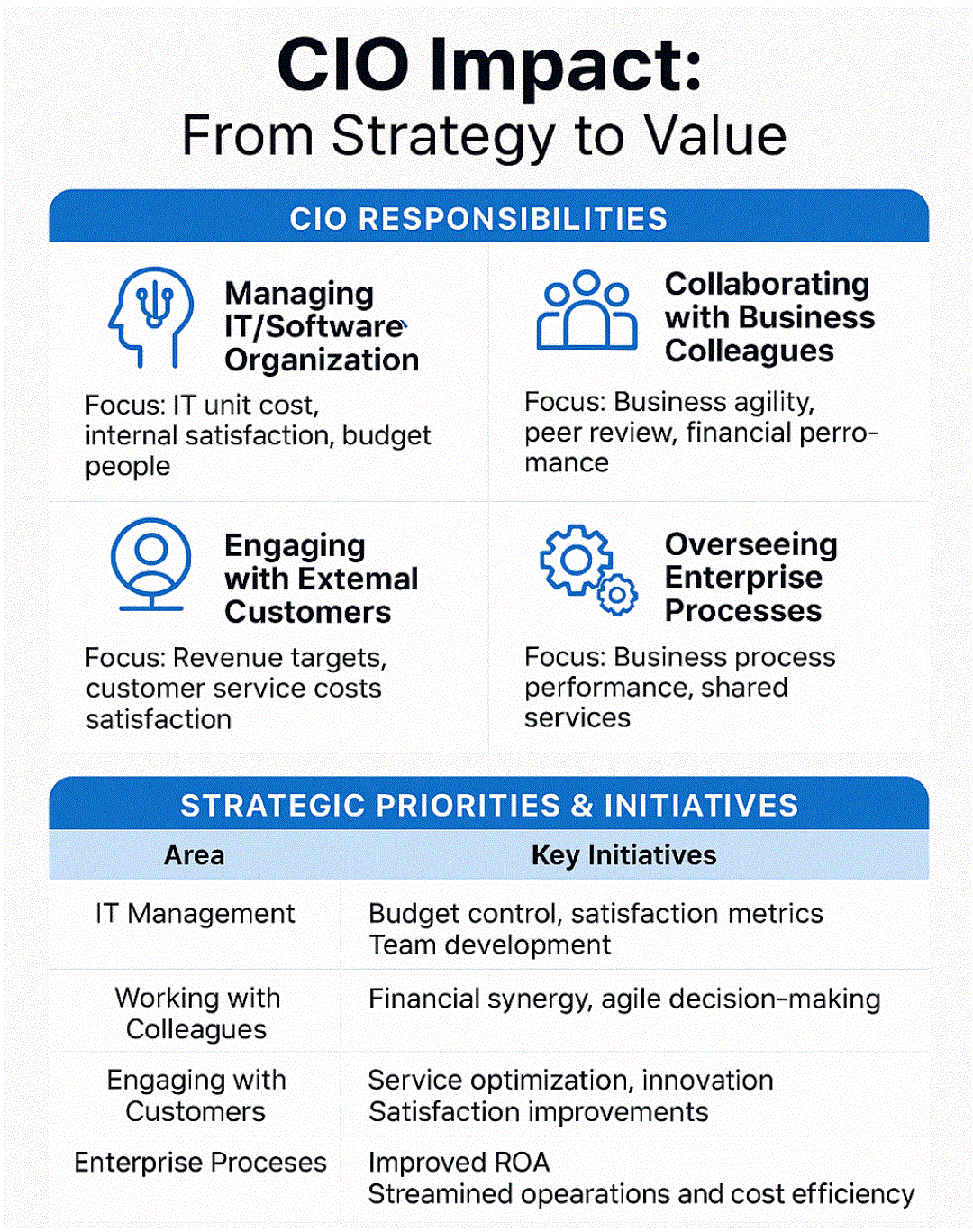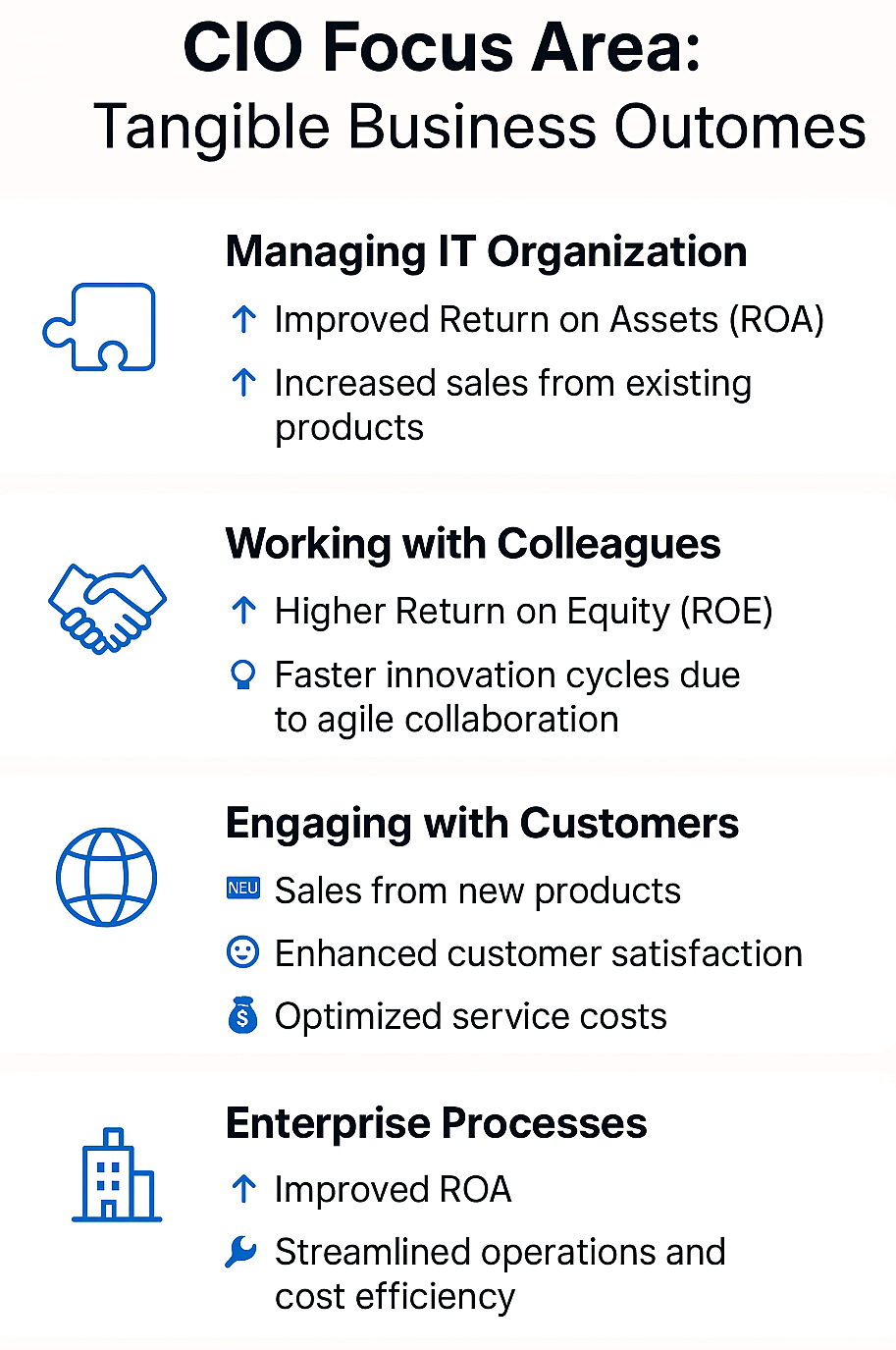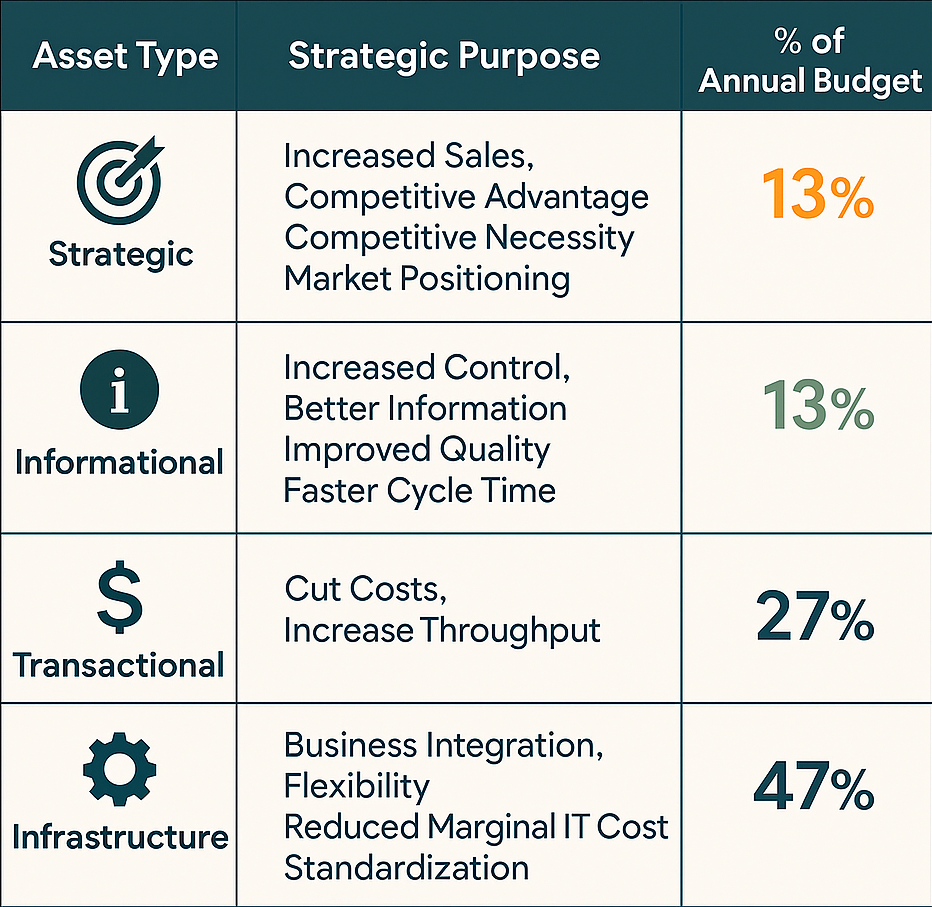From Tech Stewards to Business Catalyst:The CIO's Evolving Mandates
CIOs are now essential architects of enterprise success, impacting agility, customer experience, and competitiveness
CXO
1/31/2025


The role of the Chief Information Officer (CIO) has evolved far beyond managing IT infrastructure — it's now a pivotal driver of business strategy and innovation. CIOs are increasingly shaping digital transformation initiatives, leveraging data & AI, to uncover new revenue streams, and ensuring tech investments align with organizational goals. Their leadership directly impacts agility, customer experience, and long-term competitiveness, making them essential architects of modern enterprise success.
Today’s CIOs cater to multiple mandates, combining technical leadership with strategic foresight.
👑 CIO Responsibilities


💸 Business Impact


For a typical 1BN+ enterprise, the IT spend is allocated across various assets including Infrastructure, Applications, and Services.
Infrastructure encompasses network, storage, compute, and security
Applications can be categorized into Systems of Records (SoR: e.g. ERP, HCM, MDM), Systems of Engagement (SoE: e.g. CRM, Web, Mobile), and Systems of Intelligence (SoI: e.g. ML, AI)
Services comprise personnel providing IT Operations (ITOps), helpdesk Support, Application & Enterprise Software Development and maintenance, Data Engineering and Data Analytics/ML, Security Platform & Posture Management (PAM), Governance/EPMO
💼 Portfolio-Budget Allocation to meet Strategic Purpose


